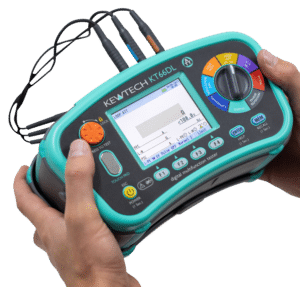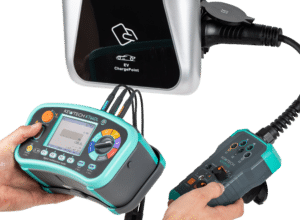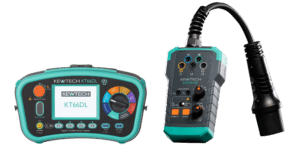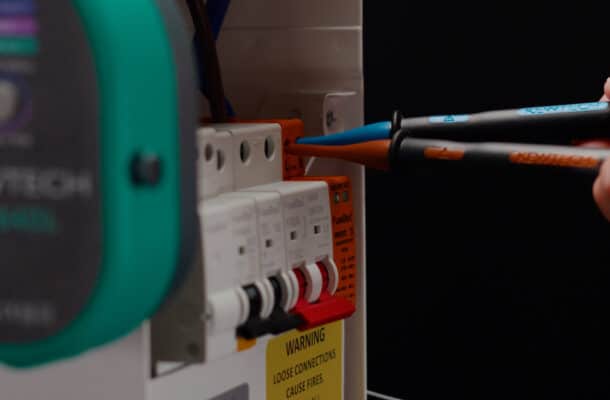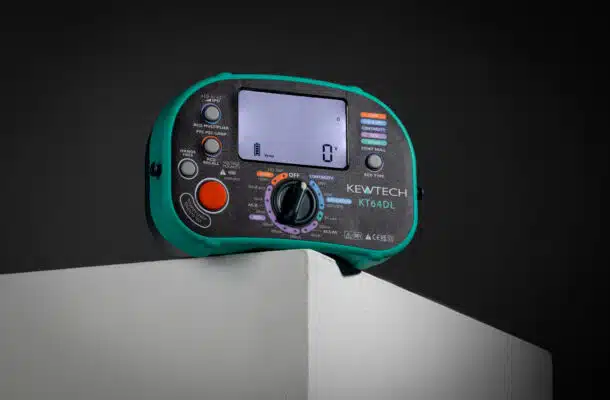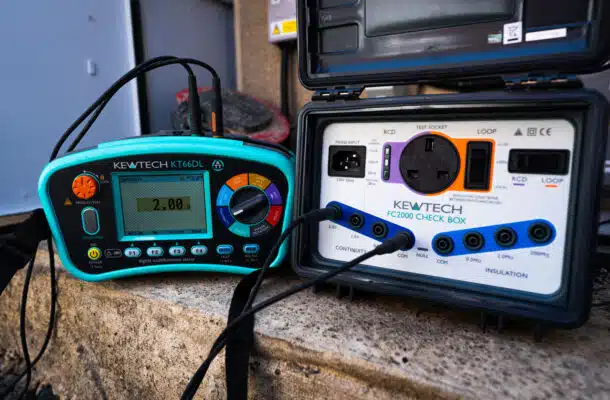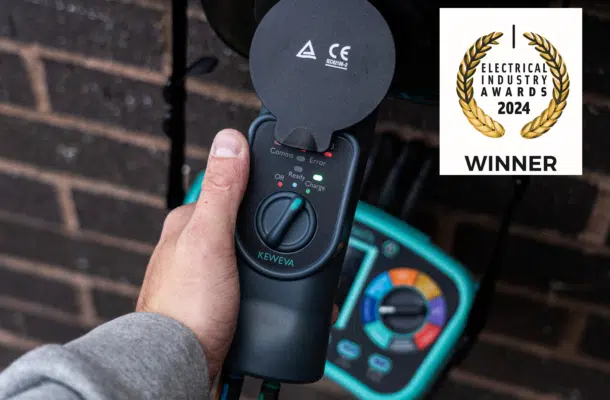More complex demands on energy requires more sophisticated test equipment.
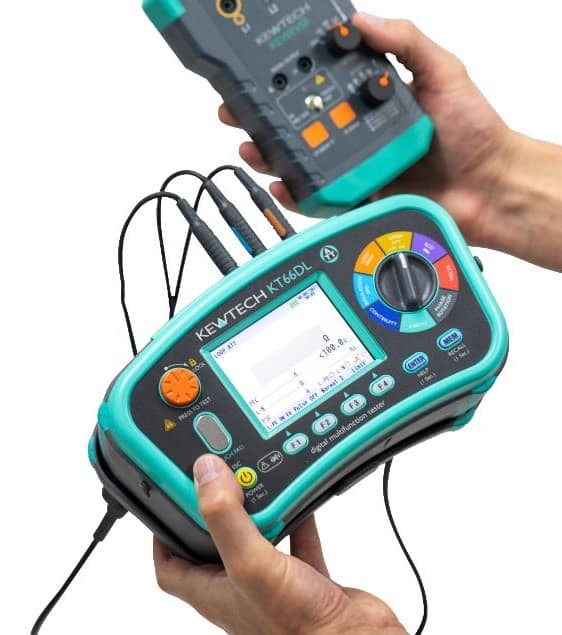
How the KT66DL can keep up with the more complex energy demands.
The recent changes in the wiring regulations reflect our changing electrical world with greater requirements for SPDs, AFDDs, 6mA RDC-DDs & B type RCDs. Our usage of energy is continuously changing, for instance the increasing use of non-linear loads, AC supply being converted to DC and vice versa. These changes conspire to make testing more challenging in an environment which has ever more electrical noise.
Loop Testing
The popularity of a multifunction installation tester, such as the Kewtech KT66DL, has traditionally been dependent on the quality of the loop test function. This is still the case but other advanced features are also proving important.
The KT66DL has 6 loop test options to cater for all Zs & Ze situations that you will come across. Two are high current tests, the first of these is a 6 A test and provides resolution to 0.01 Ω. The second is a 25 A test which gives a resolution of 0.001 Ω and importantly enables a genuine 50 kA prospective short current range. Important when you are testing near a transformer.
For Zs testing with RCDs in the circuit, ‘no-trip’ loop tests are required. This means a test current of less than 15 mA to ensure that the RCD does not trip. This in turn means that the instrument is measuring voltage drops of a few mV to determine the resistance of the circuit that may run for 100s of meters. Often this measurement is undertaken in an electrically noisy environment. It is vitally important therefore, that your MFT can overcome this noise and give accurate and repeatable results.
The KT66DL offers four choices for low current testing. The first is Kewtech’s standard three wire test which has the greatest ability to overcome electrical noise. There are two even lower current options which have the ability to test when more sensitive equipment is inline. Particular EV charge points have been known to be very sensitive for example.
Finally, a low current two wire test is available. This is very handy for say testing lighting circuits during an electrical condition report. This enables a loop test to be conducted at a light switch where only the switched live and earth are available. This saves working high and investigating where the end of the circuit is.
RCD Testing
Advanced MFTs have a comprehensive RCD test function. The KT66DL can test type B and 6mA RDC-DDs as found in EV charging points. Amendment 2 of the wiring regulations says as a minimum you only have to test the AC characteristic, but would you be happy leaving a site with a type A RCD and you have not tested the DC characteristic given the use of type AC RCDs are now very restricted?
MFTs are not only used for certification purposes but also for fault finding. Therefore, a comprehensive RCD test function is advisable with tripping level as well as tripping time capabilities. As well as the standard RCD option the KT66DL has a useful variable RCD setting.
SPD Testing
For possible future regulations and building servicing the KT66DL has added an SPD test function.
Testing EV charging points
There is some debate about how to test an electrical vehicle charging point. Fortunately, the Kewtech KT66DL make life so easy, why would you consider short cuts or not doing a comprehensive test? The KT66DL’s single rotary switch and colour dot matrix screen make the job even easier as you can easily select manual or auto test sequences.
To fully test an EV charge point, you require an MFT with 6 mA RDC-DD / B type RCD functionality and a loop test that will not trip the internal 6 mA RDC-DD. You will also need an adaptor that simulates a car being present. The Kewtech KEWEVSE makes a perfect partner with the KT66DL or any other tester that has compatible functionality.
The KEWEVSE simulates a car being connected but not requiring a charge and then a car connected wanting a charge. In this way the functionality of the charge point can be tested and in the last position the loop and RCDs tests can be made using the KT66DL. It also happens to be the smallest in class so the easiest to use and store with your test equipment.
Both the KT66DL and KEWEVSE are included in the KT66EV kit to provide the ultimate EV testing solution.
